Hong Kong gears up for more election battles
After heavy defeats suffered by the pro-establishment camp in the recent district council election in Hong Kong, what lies ahead for the upcoming Legislative Council elections and elections for the Election Committee and the Chief Executive? Tai Hing Shing gathers relevant views and lays the cards on the table.
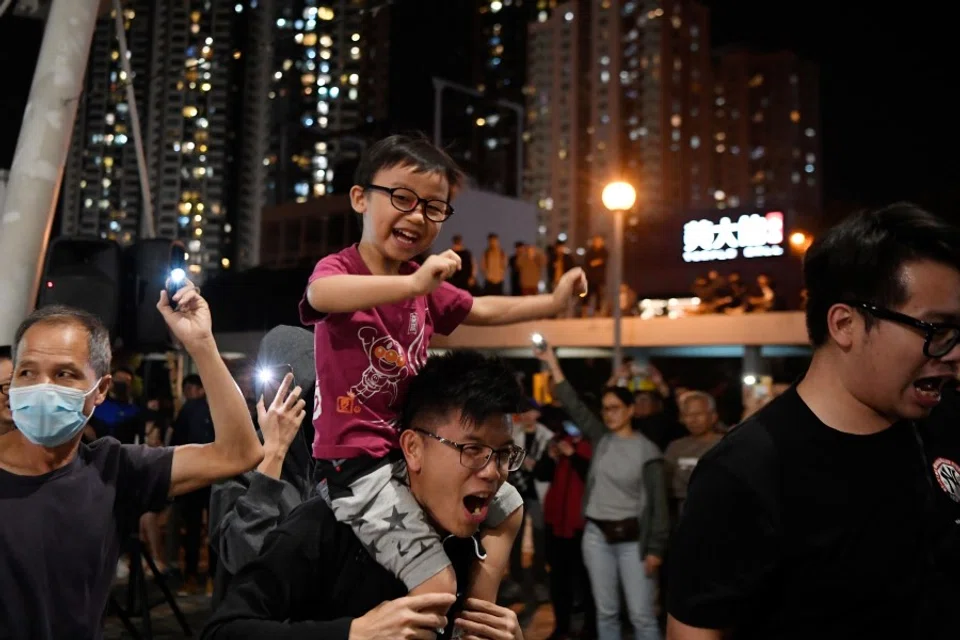
Hung Kam-in is a former district councillor for Hong Kong's Kwun Tong district and the deputy secretary general of Hong Kong's largest pro-establishment party, the Democratic Alliance for the Betterment and Progress of Hong Kong (DAB).
Mr Hung began serving the Po Tat constituency in 2002 and was elected its district councillor in 2007. Considered a rising star of the party, he was re-elected twice after that, each time garnering the most votes among all the DAB candidates. But in the recent district council elections, despite retaining his basic vote base, many new votes went to his opponent, independent candidate Fung Ka-lung. As a result, Mr Hung was not re-elected.
Following his defeat, this veteran who has spent many years serving the community reflected on why he lost to a political rookie who was parachuted in without any experience working the ground. A glaring question is: why did the young voters change sides?
Mr Hung told Lianhe Zaobao that he had always felt that the patriotic camp needed young blood, which was why he spent a lot of time working with the youth in the community, to give them support and help. But those efforts did not pay off in this election.
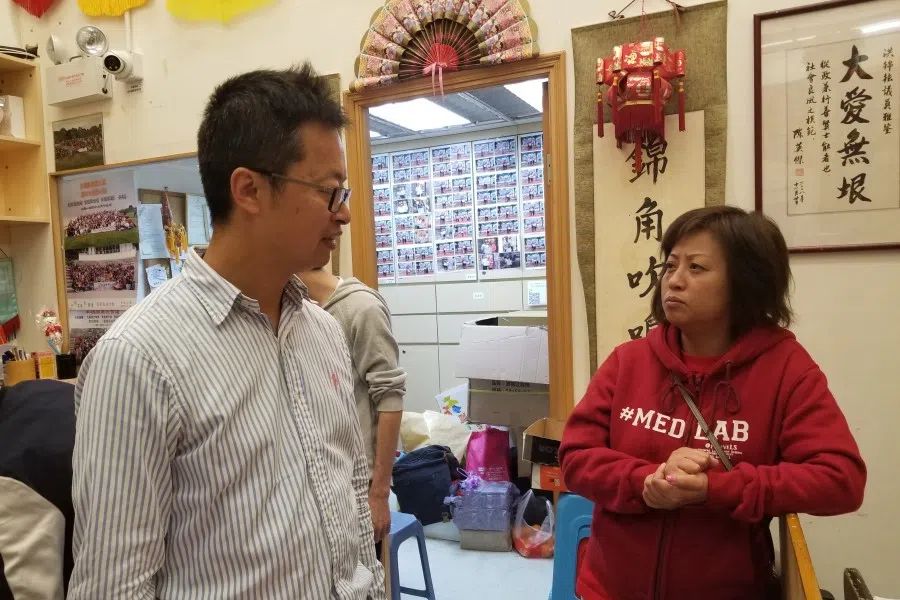
According to Mr Hung, a volunteer's daughter who is a student at an overseas university and a longtime acquaintance, came back to Hong Kong just to vote, while canvassing votes for candidates from another political party in a neighbouring district. "I don't know if she voted for my opponent, but I think there's a good chance that she did."
Mr Hung is pained by this. He laments that the election results show that service to the community no longer translates to voters' support.
He says, "The pro-establishment camp is deeply involved in the grassroots and community. We feel that the district councils should focus on people's lives, and put politics aside. But now the district councils are a political playground. The elections are politicised, and the old ideas no longer apply."
Hong Kongers show their stand through elections
In fact, Hong Kong's district councils are just municipal consultant groups with no legal powers. But most voters used this year's district council elections to show their political stand, casting their votes to show their unhappiness and anger over proposed amendments to an extradition bill.
"District council members are no use when they are doing nothing; they are only useful when they are in charge!" - Wu Chi-wai
The consequence was a record voter turnout of over 71%, or 2.94 million, and a landslide defeat for the pro-establishment camp. Over 80% of the 452 elected district councillors are non-establishment, while pro-establishment seats plummeted to just 15%. In Wong Tai Sin and Tai Po districts, the pan-democracy camp (pan-Dems) completely routed the pro-establishment camp by sweeping all the seats.
On the night of 30 November, over a thousand people gathered in Wong Tai Sin Square for a victory celebration.
Democratic Party chairman Wu Chi-wai declared, "District council members are no use when they are doing nothing; they are only useful when they are in charge!"
Mr Wu said district councillors' greatest function is to act as a bridge. He added that the pan-Dems intend to gather evidence and set up a committee in Wong Tai Sin district council to investigate the recent cases of police violence. He hoped the non-establishment camp can take all 452 seats in the next district council elections.
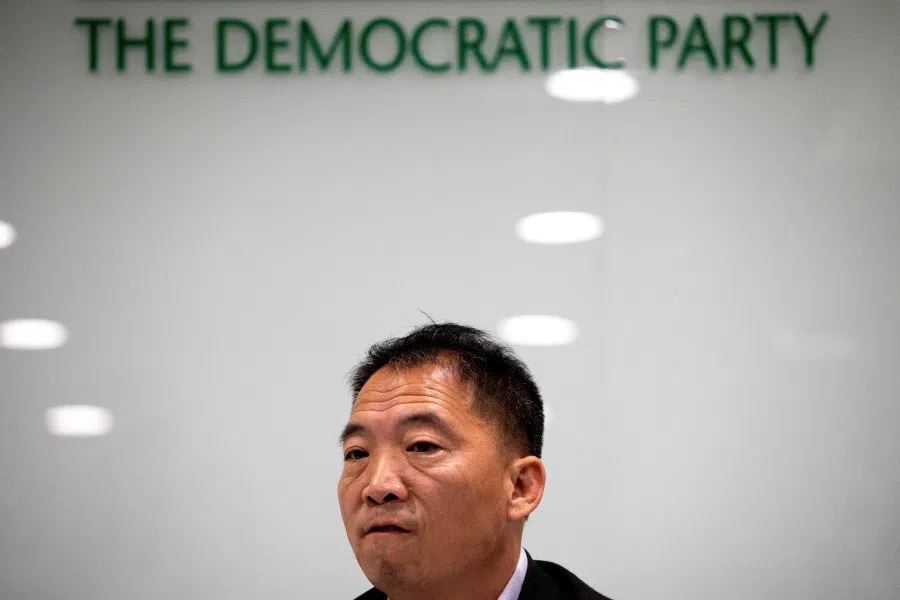
Mr Wu's comments reflect that the district council elections may have ended peacefully, but the current political unrest has not subsided. Hong Kong has several other elections lined up over the next three years, beginning with next year's Legislative Council (LegCo) elections to be held in September. The clean sweep by the pan-Dems in the district council elections is just the first movement in a symphony of political competition.
Apart from some 100,000 fresh voters in this district council election, about 800,000 previously apathetic voters also came out to vote. These people gave their vote to the non-establishment camp, which saw their votes go up from 580,000 in the last election to about 1.6 million votes this time.
Pan-Dems aim for more than half of seats in LegCo
Benny Tai, one of those who started the Occupy Central movement, said in a recent interview with Hong Kong media that based on the district council election results, the pan-Dems are aiming to win over half of the seats in next year's LegCo elections. This would involve winning another three to five seats, in addition to the 19 direct election geographical constituency seats it already holds.
Wu Junfei, deputy director of the Tianda Institute, a think tank in Hong Kong, added that he is pessimistic about the pro-establishment camp's chances in next year's LegCo elections.
He explained that of the 70 LegCo seats, six are linked to the district council election results. One of those seats, a "District Council (First) functional constituency seat" is reserved for a representative from the District Council. This seat used to be a sure-win for the pro-establishment camp, who were in the majority in the District Council. Not any more. This seat will most certainly to go the pan-Dems next year.
Other functional constituency seats that are voted on by industries' representatives such as "Architectural, Surveying, Planning and Landscape", and "Engineering", are also categories that the pan-Dems can hope to win next year.
"...the number of pan-Dem seats might go up from 30 now to 36 and above, which means more than half of the LegCo seats. That would make it more difficult for the Hong Kong government to work." - Wu Junfei
In recent months, the pan-Dems have started election preparations. Take the "Catering" industry for instance. Many voters are representatives of major chains, some of which are large conglomerates with many subsidiaries, resulting in a single brand holding tens of votes. That is how the pro-establishment camp has monopolised the LegCo Catering seat since 2000.
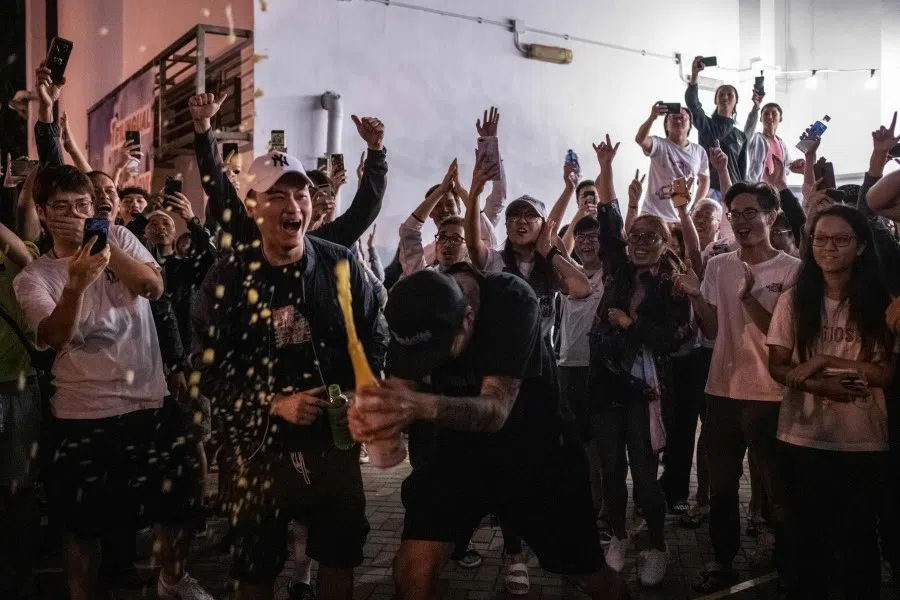
But the tide has started to turn since the protests began in June. Many pro-protest stores that previously focused on business are starting to be interested in politics. The number of such eateries cannot be overlooked - if every licensed person registered as a voter for the Catering seat, the pan-Dems would definitely give the pro-establishment camp a run for their money.
Besides a domino effect in the functional constituency seats, Wu Junfei predicts the possibility that many pro-establishment camp supporters who are disappointed by the Hong Kong government and the pro-establishment camp may not vote, which means the pan-Dems may win big again. He says, "When that happens, the number of pan-Dem seats might go up from 30 now to 36 and above, which means more than half of the LegCo seats. That would make it more difficult for the Hong Kong government to work."
Low morale in pro-establishment camp
In contrast to the pan-Dems' high spirits, morale in the pro-establishment camp is low. In particular, the DAB went from holding nearly 120 district council seats to being a minority holding just 21 seats, losing a lot of political resources along the way.
Now, with just about nine months left to the LegCo elections next year, all eyes are on how the DAB can turn things around and come back from their huge losses.
DAB member Ngan Man-yu, who was re-elected in Jordan Valley constituency in Kwun Tong, said the party will expand its network through its current 18 branches, look for locations in various districts to set up new offices, and open up channels to bring in party candidates who lost. DAB LegCo members will also bring in former district councillors as assistants.
The similarly pro-establishment Hong Kong Federation of Trade Unions (FTU) also suffered a heavy loss, with just five seats now, from 29 before. LegCo member Ho Kai-ming, who failed to retain his district council seat, revealed that the FTU will implement major adjustments soon, including setting up more popup stands on the street for publicity.
One pro-establishment supporter who declined to be named pointed out that the LegCo and district council elections are different, as the former works on proportional representation. Based on the latest district council voting, the so-called "golden ratio" of 60:40 margin of votes for pro-democracy vs pro-establishment candidates was not broken. If the voting pattern remains the same, the pro-establishment camp might lose a few more seats in the LegCo elections next year, but should still retain half the seats, without too much impact on LegCo operations.
Should Beijing be harder or softer on Hong Kong?
In the face of Hong Kong's worst political crisis since being returned to mainland China in 1997, how will Beijing adjust its approach to politics in Hong Kong? Will it go harder or softer?
Wu Junfei feels Hong Kong's problems need to be resolved quickly, and Beijing needs to use both the hard and soft approach. Hard measures include emphasising the role of the National People's Congress (NPC) in interpreting Hong Kong's Basic Law, strengthening Beijing's power to appoint and remove Hong Kong officials, and encouraging mainland China cities to compete with Hong Kong.
In terms of soft measures, Mr Wu feels Beijing may continue to offer perks to Hong Kongers, while China-funded businesses in Hong Kong can also play a more active role.
He says, "In recent years, China-funded businesses in Hong Kong have been hiring many Hong Kongers. For example, the CITIC Group has about 40,000 Hong Kong staff. As long as staff welfare is taken care of, that is enough to help the central government resolve the conflict between mainland China and Hong Kong."
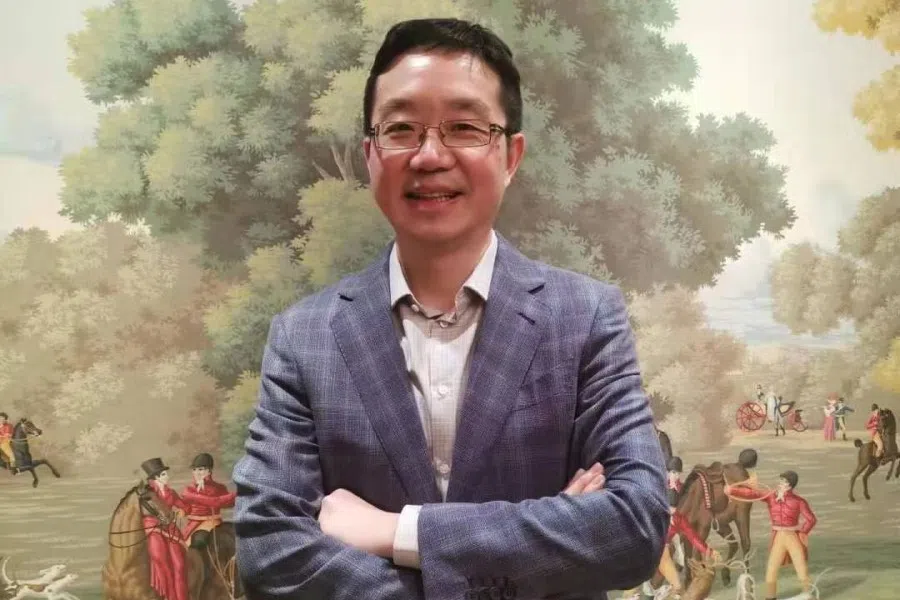
Commentary writer, Hong Kong property agent and well-known businessman Shih Wing-ching, feels that if Beijing does not take firm action now to resolve Hong Kong's issues, it will have to accept a strategic retreat and give real concessions to mitigate the differences between the concepts of "one country" and "two systems". This might include extending the commitment of no change to "one country, two systems" for another 50 years beyond 2047.
He says, "This is the only way to reignite Hong Kongers' hope in the future, and put their effort into planning the new Hong Kong, rather than being mired in the rights and wrongs of past incidents."
As for the pro-democracy camp, they are worried that Beijing will go in the other direction and take harder measures against Hong Kong.
Professor Wilson Wong of the Chinese University of Hong Kong (CUHK) said given the pan-Dems' landslide district council elections victory, they could now work with businesses to swing the key votes in the Chief Executive election in 2022. Anticipating this threat, it is possible that the central government might find a way to interpret the Basic Law and change the election rules in order to be in control.
Tougher challenge for 2021 Election Committee subsector elections
In any case, one thing is sure: the heavy defeat for the pro-establishment camp means a tougher challenge in the second battle that will happen in two years - choosing the Election Committee that will in turn select the next group of Hong Kong administrators.
Of the current 1,200 Election Committee members, 117 are voted for among the district councillors. Previously, the pro-establishment camp made up the majority in the district councils, leading to a monopoly on the seats in this category. But now that they are the minority in the district councils, they are unlikely to retain these 117 seats.
The pro-democracy camp held 325 seats in the previous Election Committee. If they win all the above 117 seats in the next Election Committee, they will hold about 440 seats, which is nearly 40% out of all 1,200 seats.

A source in charge of the pan-Dems' planning and coordination for the Election Committee disclosed to Zaobao that the pan-Dems had not gone all out to win in previous elections, but they will do so next year, and the number of votes they are confident of getting might swell to nearly 500.
Once that happens, it will directly impact the third battle - the 2022 Chief Executive election. Votes from the business sector of the Election Committee will carry more weight and have more influence over how Beijing can select the candidate they want. Right now, out of 1,200 members, the business sector holds more than 300 votes, including about 100 votes that Beijing does not fully control.
Business sector will be key minority in Chief Executive election
Ivan Choy of CUHK believes that Hong Kong's local business sector - which currently holds about 100 to 200 seats in the Election Committee - will be crucial in the 2022 Chief Executive election, making the difference as to who wins in the end. The business sector and the pan-Dems together will have about 600 votes, which is a situation the central government does not want to see.
Mr Choy says even though Hong Kong's local business sector got on well with Beijing in the initial stages after Hong Kong's return, there have been changes in recent years. Both sides had different ideas about who they wanted to support in the previous two Chief Executive elections.
In recent months, the central government has been taking out its frustration about the Hong Kong protests on property developers and encouraging fierce criticism from mainland official media. In response, Hong Kong media has mocked the mainland's attempt as an act of "purging the landlords" (斗地主). All this just deepens the conflict.
Wu Junfei feels one reason for Hong Kong's current problems is the government's obliging attitude towards the business sector. In future, Beijing will need to restrain the business sector and support the grassroots, which will upset the fundamental interests of the former. However, Beijing also needs to keep the business sector satisfied in the Chief Executive election. How to achieve all that will be a hard test for the authorities.
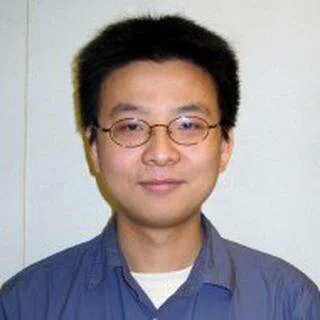

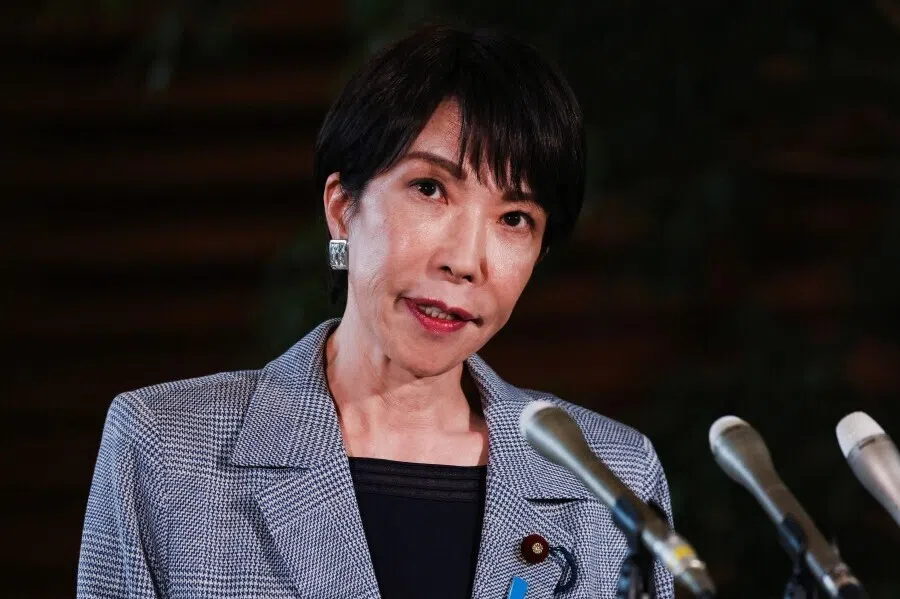
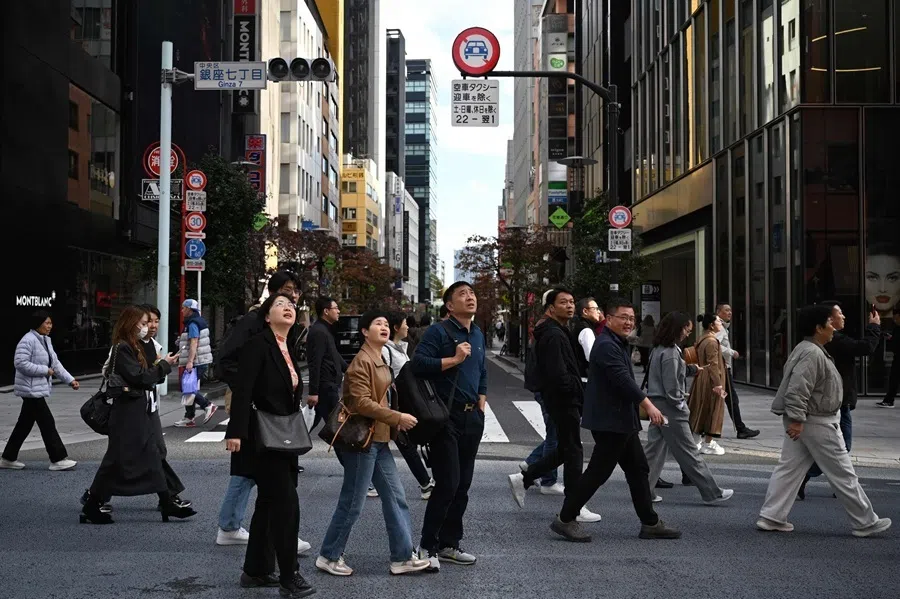
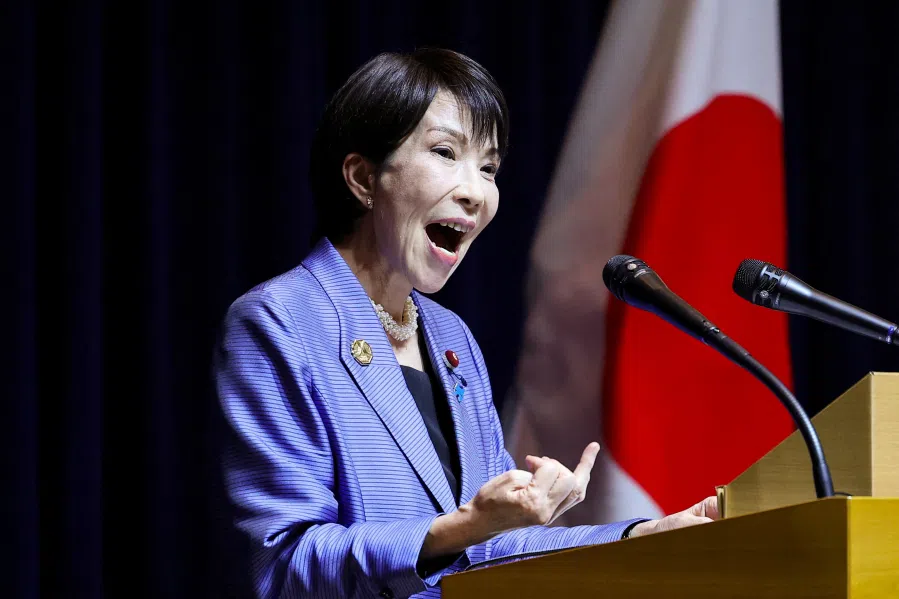
![[Big read] China’s 10 trillion RMB debt clean-up falls short](https://cassette.sphdigital.com.sg/image/thinkchina/d08cfc72b13782693c25f2fcbf886fa7673723efca260881e7086211b082e66c)